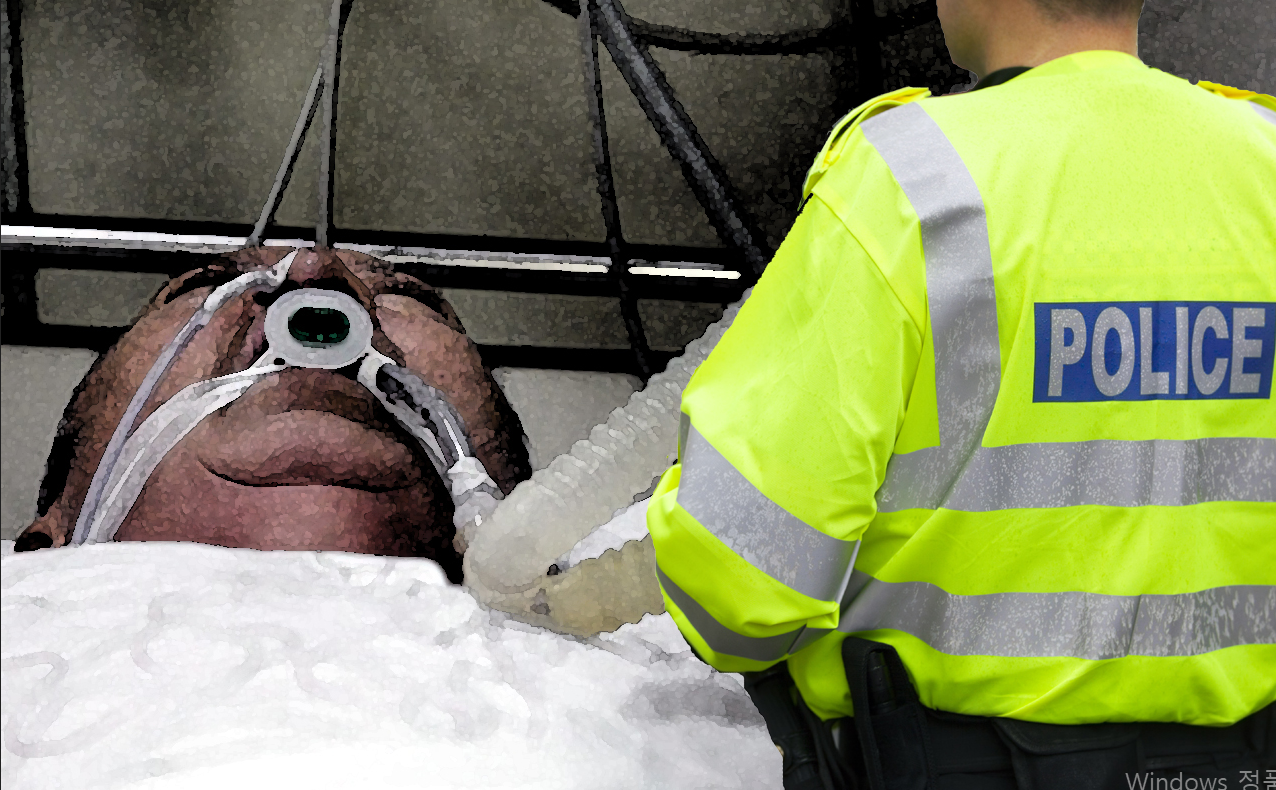
Controversy breeds after three doctors were sued for stopping a patient’s life-sustaining treatment. The person who sued the doctor is a “third party" not directly related to the decision on life-sustaining treatment -- the perpetrator who beat the patient to brain death.
According to police in Masan, South Gyeongsang Province, the perpetrator, in his 60s, was indicted for strangling the victim to death during a fight while drinking with the latter, who lived in the same residence on March 15, 2021. The victim was immediately taken to the hospital but was declared brain dead. The assailant was arrested on charges of attempted murder.
Later, the victim became subject to suspending life-sustaining treatment. His first son agreed and submitted a disability certificate for his younger brother, who was serving in prison at the time. Accordingly, the hospital stopped life-sustaining treatment for the victim. On March 20, 2021, five days after the incident, the victim died.
Then, the perpetrator’s criminal charge changed from attempted murder to murder. Finally, he was sentenced to three and a half years in prison for injury and death in January last year. The sentence was confirmed because he did not appeal.
Then, this past January, a year after serving his term, the assailant sued the three doctors, claiming that the hospital made a wrong decision to suspend life-sustaining treatment and he was being punished for injury and death, not injury. He took issue with the victim’s second son, pointing out that the latter only submitted a disability certificate without directly expressing his consent.
The police asked the Korea National Institute for Bioethics Policy if it is possible to decide to stop life-sustaining treatment only with a disability certificate and received a reply.
“We asked the institute whether a disability certificate has efficacy in deciding to stop life-prolonging treatment, but the answer was ambiguous,” a police officer told Korea Biomedical Review over the phone on Tuesday. “We will investigate doctors and witnesses and decide whether to send the accused doctor to the prosecution accordingly.”
The medical community expressed concerns that it might become the “second Boramae Hospital incident.”
The Boramae Hospital incident occurred in December 1997, causing social discussion on stopping life-sustaining treatment. Doctors who stopped life-sustaining treatment at the request of a patient’s wife were sentenced to probation for aiding a murder at the Supreme Court. Afterward, doctors became reluctant to stop life-sustaining treatment. Such an atmosphere changed only after the top court allowed the stopping of life-sustaining treatment on an old lady in 2009 and was institutionalized in February 2018 with the enactment of the Life-Sustaining Treatment Decision Act.
Experts cautioned against over-interpretation. They said the key point is the doctors stopped "meaningless life-sustaining treatment" for patients who were medically diagnosed with brain death close to death, adding that whether to stop life-sustaining treatment is a matter to be decided by the ethics committee of medical institutions and the level of criminal punishment for criminals is not subject to consideration and is a separate issue.
“It is difficult to say that the hospital violated the life-sustaining treatment decision procedure (related to this case). He was a brain-dead patient and medically close to death. If you leave a brain-dead patient alone (without life-threatening care), the patient dies,” said Professor Moon Jae-young of the Department of Critical Care Medicine at Chungnam National University Sejong Hospital. “If it is difficult for the second son to move to a hospital in south Gyeongsang Province due to physical disabilities, there will be no legal problem just by submitting a disability certificate."
Professor Moon is a director at the Korean Society for Medical Ethics and works on medical institutions’ ethical committees. He recently received a commendation from the minister of health and welfare in recognition of his efforts to establish the life-sustaining treatment decision system.
Moon said a similar accident frequently occurs in the medical field. In deciding whether to stop the life-sustaining treatment of children who became brain-dead due to parental abuses, doctors often must seek the consent of their parents as perpetrators.
“Sometimes, the perpetrator who abused a child to brain death is one of the parents. If one parent agrees to stop life-sustaining treatment and the child dies, the perpetrator’s criminal charge changes,” Moon said. “In these cases, we ask prosecutors, who say, ‘Whether to stop life-sustaining treatment is a matter to be decided by medical institutions’ ethics committees. Just decide medically without considering the change in a criminal charge.’”
It is a problem frequently occurring in the medical field, although many go unrevealed. However, Professor Moon added that they have nothing to do with the Life-Sustaining Treatment Decision Act.
“The law’s key point is that even if a patient’s treatment continues, they will die. Doctors should not approach the matter that criminal charges may differ depending on their decisions,” he said.

